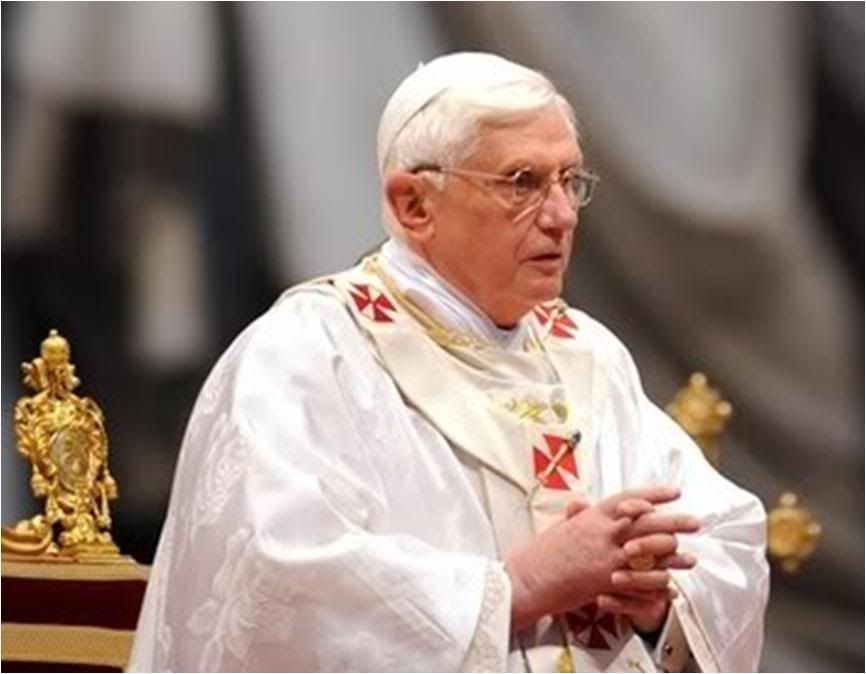 Pastors after God's own heart
Pastors after God's own heart


VATICAN CITY, Sept. 17 (Translated from FIDES) - The Holy Father's homily at St. Peter's Basilica on Saturday, Sept. 12, when he ordained five new bishops has resounded widely.
Though such resonance is in some ways unjustified, in other ways , it is plausible. One must always remember that when Peter speaks, he addresses the whole Church and that his Magisterium is always universal in character, as is proper to the Pope's personal responsibility.
Therefore, it is improper to attribute to any of his interventions specific references to situations and persons, or worse, to mundane political events.
Unfortunately, public information tends to promote such a perspective - for headline value, usually - and routinely attributes direct intentionality to general discourses.
Equally noteworthy is the media interest in certain statements of the Holy Father picked out of an ample homily that had great theological substance, as though those statements had been 'extraordinary revelations' that had never been said before!
Benedict XVI said this:
Faithfulness is altruism, and as such, it is liberating for the priest himself and for those who are entrusted to him. We know how in civilian society, and not seldom in the Church, things go bad when many of those who have been given a responsibility, work for themselves rather than for the community, for the common good./DIM]
Most of the newspapers dwelt on this passage, omitting the fact that the main example given by the Pope had been 'in civilian society'. So if he was exhorting anyone, it was an exhortation to everyone - 'even in the Church' - who are invested weith responsibility in any field.
Two references concerning the Church in the statement do appear extraordinarily courageous and prophetic - "not seldom' and 'many'. It is clear that the adjective 'many' refers to offenders in both civilian society and the Church, but the 'not seldom' is without a shadow of doubt a clear and unequivocal judgment on the Church, a strong call to conversion for the Pastors of the universal Church, to all those who are invested with responsibility in the Church, especially the successors to the Apostles.
What could be more natural and physiologic than a Father who calls the attention of his own children? It is a sign of love and merciful charity toward them.
This admission of 'imperfection' within the Catholic hierarchy itself may have been surprising to some, and in fact, did raise eyebrows. But not from a Pontiff who, at a time when hardly anyone thought he would be Pope in just a few weeks, publicly denounced the 'filth inside the Church' [2005 Via Crucis at the Colosseum],
His point is that in exercising the priestly ministry - or civlian functions, for that matter - to use others instead of being of use to them, makes the responsible person unhappy.
Both in psycho-anthropological and in evangelical terms, everyone knows how selfishness and evil progressively suffocate those who live off them. Moreover, it is clear that those who still need to use power to assert themselves because they have not experienced - or do not acknowledge the possibility - of being 'affirmed by God', affirmed and grasped by the Mystery of Good who creates all things and who, alone, 'makes' Pastors.
The true concern is about persons constituted in reponsibility who, because they are still uncertain of God's freely-given love, must seek gratification and a human foothold (perhaps too human), believing deludedly to thus find a response to their own existential needs.
True freedom instead has no price! Not the freedom that is born from the joyous certainty of having God as its only reference and guanrantee of one's own full realization.
In humble and faithful compliance with God's will, man finds himself, and discovers an unexpected interior equilibrium, which gives him a capacity for giving freely, overcoming through grace every human form of selfishness.
Let us then pray to the Lord of harvests, that he may always give us 'pastors after his own heart', contemplatives of Divine mercy and, therefore, possessing great interior and public equilibrium.